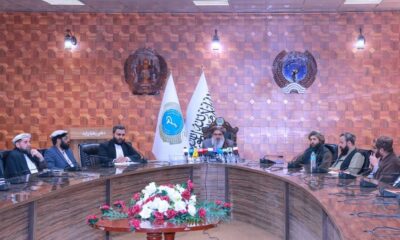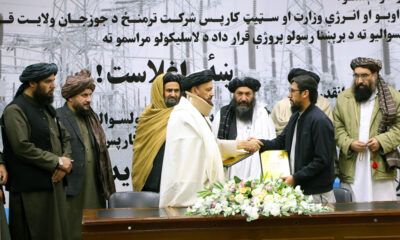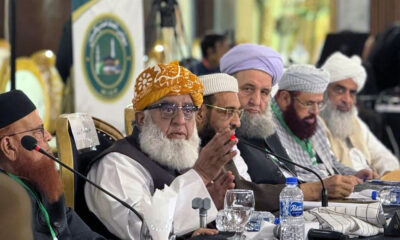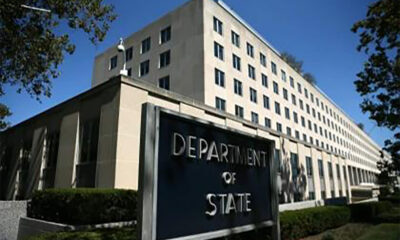Latest News
NATO chief says ‘no guarantee of success’ in Afghanistan peace process
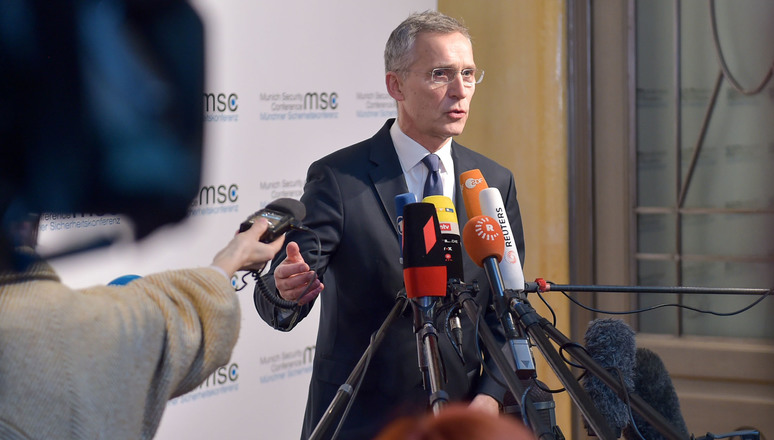
NATO Secretary General Jens Stoltenberg said this week there is no guarantee of success in Afghanistan but that the organization will meet with incoming US President Joe Biden’s team in February in order to make a decision on whether to stay in the country or withdraw all its troops.
In an interview with Germany’s dpa news agency, Stoltenberg said: “Whatever we decide, there is a risk. If we decide to leave, the risk is that we will lose the gains we have made in fighting international terrorism to prevent Afghanistan from becoming a safe haven.
“If we stay, of course there is the risk that we will see increased fighting, violence, and that we will remain engaged in a long-term military conflict in Afghanistan,” he said.
He stated that “it’s a fragile peace process” currently and that there is “no guarantee of success”.
“But the ongoing talks in Doha between the Afghan government and Taliban is the only path to peace, and NATO strongly supports those efforts.
“We will have another meeting in February with the new Biden administration and then make our decisions,” Stoltenberg said.
This comes amid what he described as a fragile peace process – intra-Afghan negotiations, which are set to resume in Doha, Qatar, on January 5.
However, in February the US signed an agreement with the Taliban agreeing to withdraw all its troops from Afghanistan by April next year.
Already the US is down to only about 4,000 troops, from 13,000 a year ago, and by mid-January only 2,500 will remain.
According to Military.com, NATO had about 11,000 troops in Afghanistan at the end of November – a figure that includes US troops.
The largest contingents from other nations include Germany, the United Kingdom and Italy. Each had roughly between 900 and 1,000 troops supporting the effort as of June.
Stoltenberg’s interview with dpa comes a month after he expressed concern about the US’s withdrawal plan, saying the Taliban had not kept its end of the deal and a hasty withdrawal of troops could make the country a haven for terror groups.
“As you know, the United States has announced that it will reduce its presence in Afghanistan. But the NATO mission will remain,” he said in November. “And we will continue to provide support to Afghan security forces,” he said at the time.
Latest News
Power project signed to electrify 47,000 homes in Jawzjan
According to MoEW, the project will be funded through revenues from Afghanistan’s mines and will provide electricity to around 47,000 families.
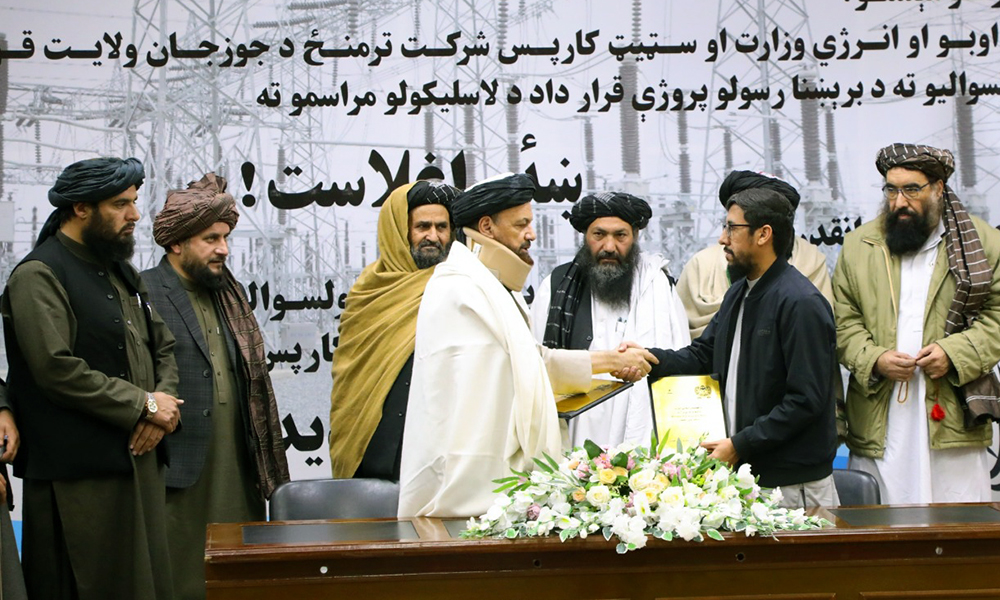
The Ministry of Energy and Water (MoEW) on Tuesday signed a major power supply project worth over 1.8 billion afghanis with domestic firm State Corps to provide electricity to Qush Tepa and Darzab districts in northern Jawzjan province.
The contract signing ceremony, held at the Government Information and Media Centre, was attended by Deputy Prime Minister for Economic Affairs Mullah Abdul Ghani Baradar and senior government officials.
Mawlawi Abdul Rahman Rahmani, Director General of Renewable Energy at MoEW, said the $28.4 million project (equivalent to 1.886 billion afghanis) aims to ensure nearly all households in Qush Tepa and Darzab have access to electricity.
He explained that the project involves constructing an 85.4-kilometre transmission line from Shiberghan, the provincial capital, building substations, and establishing electricity distribution networks in both districts.
Alauddin Salim, representing State Corps, described the initiative as “crucial” and said it is expected to be completed within three years. He highlighted that domestic firms, like State Corps, are more committed than foreign companies to project delivery.
According to MoEW, the project will be funded through revenues from Afghanistan’s mines and will provide electricity to around 47,000 families. The ministry urged the company to ensure timely completion with high quality standards.
Latest News
Pakistani cleric condemns lifetime immunity for Army Chief as un-Islamic
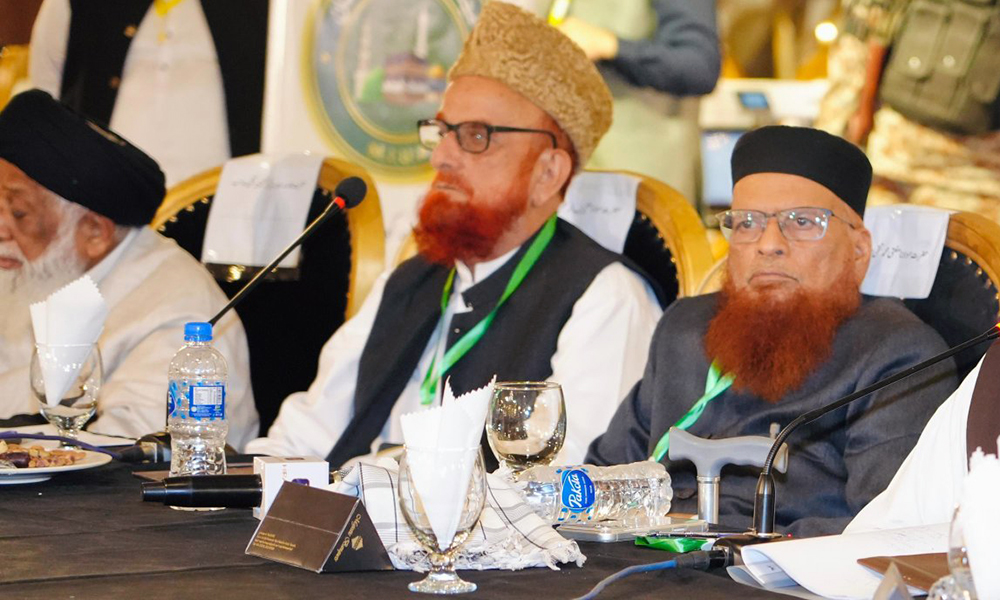
Prominent Pakistani religious scholar Mufti Taqi Usmani has strongly criticised moves to grant lifetime immunity to Pakistan’s Army Chief, General Asim Munir, describing such protection from judicial accountability as contrary to Islamic principles.
Speaking at a public gathering on Monday, Mufti Usmani said that Islam does not place any individual above the law, stressing that rulers, military leaders and ordinary citizens are equally accountable for their actions. He emphasised that justice and accountability form the foundation of an Islamic system, and that permanent immunity for powerful figures violates the spirit of Sharia.
The cleric warned that creating legal distinctions between state officials and the general public undermines public trust and fosters injustice within society. He urged state institutions to adhere to Islamic values when making political and military decisions, particularly those affecting governance and accountability.
Mufti Usmani’s remarks come amid growing debate in Pakistan over the role of the military in state affairs and the expanding authority granted to senior army officials. The issue has drawn heightened public and political attention in recent weeks, with critics arguing that excessive protections weaken democratic institutions and the rule of law.
Latest News
Fazal Ur Rehman says Pakistan’s ‘attacks’ on Afghanistan are unjustifiable
“If you justify attacks on Kabul by claiming your enemies are present there, then why is your response different when India targets its enemies inside Pakistan?” he said.
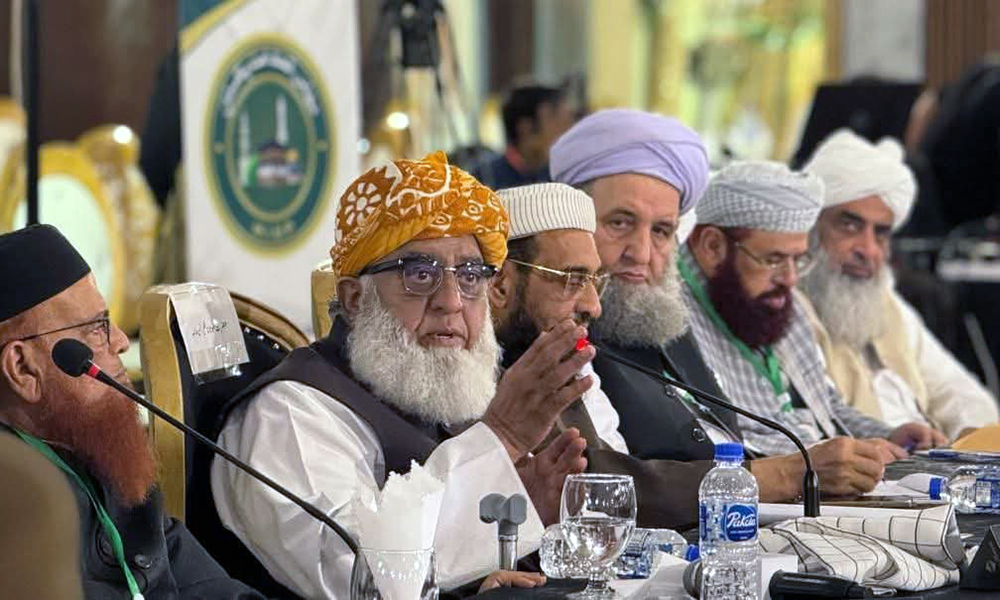
Senior Pakistani religious leader and politician Maulana Fazal Ur Rehman has condemned attacks on Afghanistan carried out under the pretext of targeting militant groups, calling such actions unjustifiable and counterproductive.
He urged both Kabul and Islamabad to resolve their disputes through dialogue and political engagement rather than military means.
Speaking at a gathering of Pakistani religious scholars titled “Pakistani Ummah Unity,” Fazal Ur Rehman, who heads the Jamiat Ulema-e-Islam (JUI-F) party, criticized Pakistan’s security approach toward Afghanistan.
Addressing Pakistan’s military leadership, he questioned the rationale behind cross-border actions, asking why attacks are justified against Afghanistan when similar logic is rejected in response to Indian strikes inside Pakistan.
“If you justify attacks on Kabul by claiming your enemies are present there, then why is your response different when India targets its enemies inside Pakistan?” he said.
Fazal Ur Rehman warned that continued tensions between Afghanistan and Pakistan serve the interests of neither country and risk further destabilizing the region.
He stressed that dialogue, mutual respect, and political understanding remain the only sustainable solutions to long-standing disputes between the two neighbors.
-

 Latest News2 days ago
Latest News2 days agoAfghanistan signs 30-year deal for marble mining in Daikundi
-

 Latest News4 days ago
Latest News4 days agoAfghan border forces prevent illegal entry of hundreds into Iran
-

 Latest News3 days ago
Latest News3 days agoPakistan summons Afghan diplomat over deadly attack in North Waziristan
-

 Latest News3 days ago
Latest News3 days agoAfghan health minister calls for medical cooperation between Kabul and New Delhi
-

 Latest News4 days ago
Latest News4 days agoJapan allocates nearly $20 million in humanitarian aid for Afghanistan
-

 Latest News3 days ago
Latest News3 days agoKarzai urges reopening of girls’ schools and universities for Afghanistan’s bright future
-
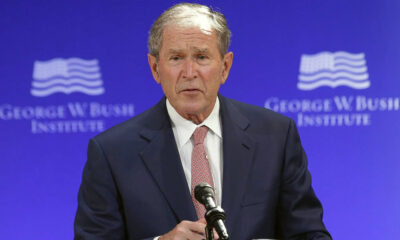
 Latest News2 days ago
Latest News2 days agoBush Institute criticizes Trump administration’s Afghan immigration freeze
-

 Health4 days ago
Health4 days agoIndia issues over 200 medical visas to Afghans in last four months


